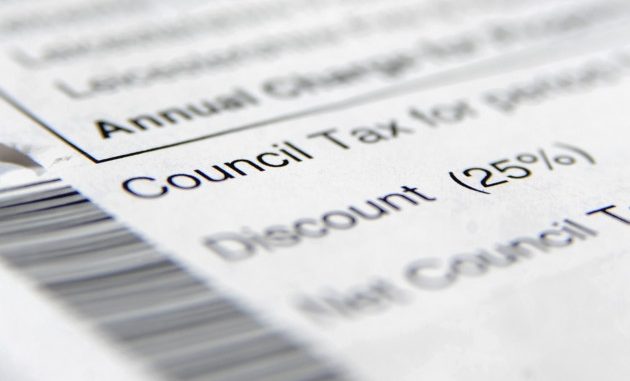
By Suzanne Martin
A Freedom of Information request to Thanet District Council has revealed the total value of unpaid council tax debt owed in the district up to the end of the 2022-2023 financial year is a staggering £23,202,000.
The figure has built up over the past 30 years, since the charge was first introduced, and includes £2m related to court summons fees.
Of the £23.2million the bulk – 71%- is owed as Kent County Council’s share of the precept. Just below £3m is owed to Thanet council.
A statement issued by Thanet District Council said, “The quoted sum of £23.202m is a cumulative historic figure and reflects the total outstanding amount for the past 30 years – since 1993. Of this sum, £2m relates to court summons fees.”
Figures released under the same request show the debt has increased by almost nine million pounds since pre-pandemic levels in 2017-18, when it stood at £14,488,000.
A Thanet council spokesperson said: “The amount specifically owed to Thanet District Council is £2.986m. The remainder is owed to Kent County Council (71%), Kent Police (11%) Kent Fire (4%) and will be repaid directly from arrears payments received.
“There is no obligation upon Thanet District Council to pay the amounts owed to the different organisations in advance of receiving payments from customers.
“The council’s ongoing funding arrangements are not impacted by this.
“Thanet District Council is the collection agency with responsibility for billing and collection on behalf of a number of agencies including the county council.”
The net budget requirement for TDC to run between 2023/24 is estimated at £20.755 million, an increase of £2.717 million on last year’s budget.
Figures were also requested regarding vulnerable residents in council tax debt. Thanet council says it does not hold data on how many cases were taken back from bailiffs after the authority accepted the individual was vulnerable.
A spokesperson said: “In any cases where we identify that a customer is vulnerable we instruct the bailiffs to stop pursuing the debt. We do not record this data because decisions are taken on a case-by-case basis and are not recorded on our Council Tax system.”
Figures show that in the last 12 months, the council has instructed bailiffs to enforce liability orders for non-payment of council tax against 10,105 households, each subject to additional costs.
Following a court hearing a liability order may be issued by the magistrates. This gives the council the authority to collect unpaid Council Tax by serving an order on a person’s employer or the Department for Work and Pensions. This means they have to send some of the money they usually pay the person to the council instead.
It is also possible that enforcement officers will be sent to a person’s home to remove items and sell them at public auction to raise the money owed both to them and the council.
A final option for non-payment is to return to court and this could result in a prison sentence.
If the magistrates consider that a person has refused or neglected to pay they can:
- commit them to prison for a maximum of 90 days, or
- commit them to prison for a maximum of 90 days and suspend the sentence for a set amount to be paid.
If the magistrates consider a person has not refused or neglected to pay, they can:
- dismiss the case, for them to make arrangements to pay, directly with the council (if an arrangement is made and then not kept to, committal proceedings can start again)
- in exceptional circumstances the magistrates may order that some or all of the arrears should not be paid. This is not a decision which is made very often but if this is decided the amount is written off.
In 2020, the government announced that it would provide local authorities in England with £500 million of new grant funding to support economically vulnerable people and households in their local area with the expectation that the majority of the hardship fund will be used to provide council tax relief, alongside existing local council tax support schemes.
These discretionary discounts decreased the amount of council tax available to be collected by local authorities in 2020-21.

District councillor John Worrow (Thanet Independents) said: “I have recently received a large volume of emails from residents finding it difficult to pay their council tax, some of whom have expressed their anger over council taxpayers money being wasted on poorly thought-out projects and pay-offs to former council officers.
“Recently as candidates for Margate’s Garlinge ward, my colleague John Dennis and I, were campaigning for lower council tax, and now having been elected with 58% of the vote we feel duty bound to draw attention to the difficulty that many residents are having paying their council tax bills.
“I was shocked, but not surprised, after learning that the total value of unpaid debt owed in the district is £23,202,000 up to the end of 2022-2023.
“The problem in Thanet and throughout Kent as whole, is that the council tax is far too high. It wouldn’t be so bad if residents money were being spent on things the community needs, instead of on vanity projects, and pay-offs to former employees.
“As a former chair of the council’s Governance & Audit Committee, I feel that Sir Keir Starmer’s pledge to freeze council tax (Guardian 30th march 2023) is a step in the right direction.
“But for this to happen Thanet council needs be run properly. This can be achieved without cutting frontline services if councillors stop paying out hundred of thousands of pounds on former council officers.
“We are in a cost of living crisis like no other, so now is the time for the political parties in Thanet to start working together.
“Thanet’s administration needs to take alternative legal advice, and when it’s time to set the council’s budget, they need to freeze, or better still, lower the council tax.”
Debt Advice
Council tax counts as a “priority debt”, but if you are on a low income, you may be entitled to Council Tax Support. You may also get a reduction if someone in the household has a disability or if you live alone. It is also worth checking whether you are entitled to additional benefits or income.
National Debtline
National Debtline offers phone and webchat services in England and Wales.
Telephone: 0808 808 4000
Monday to Friday, 9am to 8pm
Saturday, 9:30am to 1pm
Citizens Advice
Citizens Advice offers phone and webchat services. They also have advice centres in England, Wales and Scotland.
Telephone (England): 0800 144 8848
Telephone (Wales): 0800 702 2020
Telephone (Scotland): 0800 028 1456
Monday to Friday, 8am to 7pm

